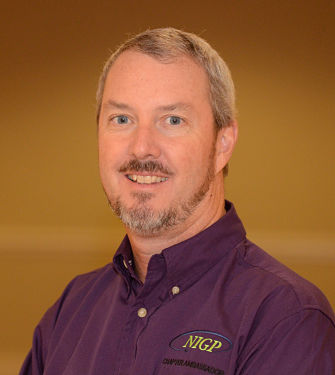Interns, embedded staff help procurement team maintain productivity
Sacramento County, Calif., has been facing budget challenges, says Craig Rader, Purchasing Agent in the county’s Contract & Purchasing Services Division. Asked how the county’s budget is shaping up as we head into 2019, Rader says, “For our agency, not good. We’ve got multiple issues that are impacting the county’s general fund and putting a strain on current and future fiscal years (FY), so funding is problematic.”
Rader has over 25 years of purchasing and materials management experience in both private industry and the public sector. He is both a Certified Public Purchasing Officer (CPPO) and Certified Professional Public Buyer (CPPB).
The FY 2018-2019 division $2.76 million budget is sizable. The division employs 19.
Even as budgets tighten, the division’s workload has been steadily increasing. The division, says Rader, is working on “a bunch of smaller construction-infrastructure projects for our Dept. of Transportation and IT Dept.” Rader adds: “Yes, these projects are affecting the division’s workload.”
Rader’s division also has worked on procurements for the new $2 billion Sacramento International Airport terminal and a $2 billion upgrade to the county’s water treatment plant. Rader says the treatment plant is still an ongoing project but he believes all or most of the contracts for the facility are already in place.
“I’ve been trying, mostly unsuccessfully, for nine years to increase staffing levels,” Rader says. He uses interns to supplement his full-time staff. “Hiring interns has been very helpful for our division, especially due to tight budgets for the past 8-9 years. Budgets are not improving, and may get worse in the next few years.” Some interns even find a long-term career path after they start working in Rader’s division. “I was able to hire one of my interns and now he is an awesome contracting officer,” Rader says.
Interns provide good value to the division, Rader says. “For me, I am able to get about ½ of a full-time equivalent’s (FTE) worth of work for ¼ the cost of an FTE using interns. Obviously, this will vary based on each agency’s FTE cost vs. intern cost. Also, government agencies can consider hiring non-paid interns.”
Rader recruit interns from nearby colleges in the area. One of those colleges has a purchasing certificate program, and interns are available through it. ”The students are eager and quick learners. It’s been great for us,” Rader says.
Rader urges procurement directors to recruit interns via networking and word of mouth. “Use your network, just like if you were trying to find a job. Most placements are done through someone you know.” He also advises using online resources. “Most colleges [or community college districts] will have an online intern job board where you can post your position.” Another suggestion from Rader: “Check to see if your local colleges have an intern posting system/program. I was able to post on one system that reaches three colleges.”
Rader urges procurement hiring managers to look for a few key characteristics when hiring interns. “Ideally, you should try to find candidates who are looking to get into the field [or related field]. Since these are interns, we don’t expect them to have any experience. We do look for good communications skills, ability to adapt and take direction, eagerness, willing to learn, etc.”
Rader has used customer-funded positions to augment his lean staff. “I have been unable to increase staffing through our budget, but two departments have funded positions to have a ‘dedicated’ contracting officer who works solely for them. One is our IT department, which by the way, I have four people working on IT procurements, one being fully dedicated and located in the IT Department.” The county’s Waste Management Department is funding a dedicated Senior Contracts Officer for Rader’s division.
Rader says customer-funded positions enable his division to provide a higher level of services and responsiveness to its clients. He cautions, however, that the program can alienate other clients who are not receiving the same benefits. He offers this caveat: “Since my customer is funding the position, if they decide in the future they no longer want/need the dedicated contracting officer and will stop funding the position, I would be looking at furloughing someone unless I can handle the transition via attrition. Make sure you service-level agreement (SLA) covers this situation.”
Rader sees several advantages for customer agencies in having dedicated contracting officers. These include faster processing of procurements and greater knowledge of customer agency needs. Rader says customer agencies are sold on the benefits of having a dedicated contracting officer. “We did not have to convince them why they needed one; they came to us asking.”
Michael Keating is senior editor for American City & County and the GPN web site. Contact: [email protected]




















